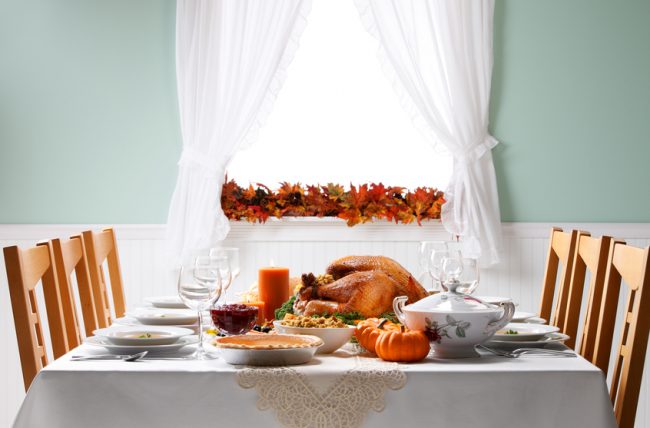Thanksgiving is a time where we come together, family and friends from far and wide, to share food and festivities. Yet, as more people are suffering from food intolerances and allergies — or they’re following special diets — it’s become increasingly difficult to serve a meal that’s safe for everyone. This holiday season, arm yourself with the knowledge and compassion to succeed in presenting a wholesome and delicious meal that everyone can enjoy.
Why you should be mindful
According to the Centers for Disease Control, food allergies have risen by more than fifty percent since 1997. There are many theories about why this increased food sensitivity is occurring. Some believe our home environments are too sterile and clean, creating immune system hypersensitivity. Others believe the introduction of genetically modified organisms into our food system has created a variety of affects to our body including the occurrence of food allergies.
Regardless of the cause, food allergies are more prevalent than ever before, with one in every thirteen children having a medially diagnosed food allergy.
Food allergies can have a large variance in symptoms ranging from mild reactions like rash and stomach upset to severe reactions including anaphylaxis, a life threatening condition marked by decreased blood pressure, difficulty breathing, facial swelling, and gastrointestinal symptoms.
Food intolerances, while usually not life threatening, can still cause severe physical symptoms and should be diligently avoided. Even if someone has a restricted diet based on health goals, preference, or beliefs, the consumption of foods which their system is not accustomed to digesting can lead to a variety of physical symptoms and discomforts.
What to avoid
When a friend or loved one has specific dietary restrictions, do not mock, make light of, or disregard their circumstance. It is likely that they are uncomfortable making any kind of demands and will offer to bring something they have prepared themselves in lieu of inconveniencing anyone else, to make them feel any more self conscious would be rude and insensitive. Ignoring a guest’s dietary restrictions makes not only that particular guest uncomfortable but makes you a bad host as well, and that makes everyone uncomfortable.
If you are preparing certain dishes to accommodate a guest at your Thanksgiving party, be sure to take precautions to prevent cross contamination. While some people can tolerate exposure to a small amount of an allergen, there are many people, for example those with Celiac Disease, a genetic autoimmune disease which damages the small intestine and affects nutrient absorption, who must remain diligent about keeping the allergen completely out of their diet.
How to celebrate thoughtfully
A great way to be inclusive and make sure your guests with food allergies or intolerances are able to enjoy the holiday festivities is to inquire ahead of time as to what you can prepare for them. Often people are thrilled to share their favorite holiday recipes with others. It is possible that these new dishes may become part of your traditions for years to come.
Another fun alternative is to switch things up and approach the meal as a potluck, asking each guest to bring a side dish while you prepare the main dish. This prevents anyone from being singled out and creates a wonderful sense of community as well. It also reduces your workload as the host, leaving you more time to enjoy the company of your family and friends.
Regardless of the reasons why someone may have a restricted diet, it is always best to be compassionate and thoughtful when preparing a meal for a diverse group of people. Make better holiday memories by expanding your culinary skills and embracing your loved ones with your meal this year.

